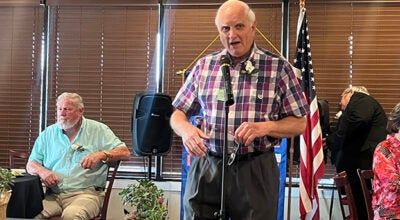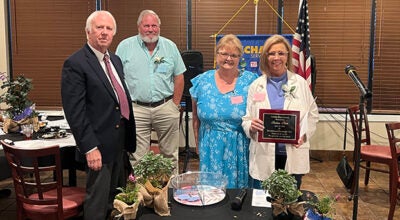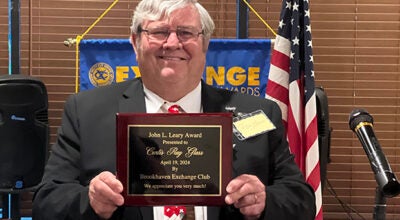Lincoln County supervisors unimpressed with road, bridge bills in House
Published 9:09 pm Wednesday, January 17, 2018
The Mississippi House made a big show of passing legislation to fund transportation improvements last week, but Lincoln County supervisors are a little skeptical about the bill’s structure.
In a small moment of downtime at Tuesday’s board meeting, supervisors voiced their concern that House Bill 722 would unevenly distribute funding across the state, blessing the coffers of less-needy counties while stiffing those with heavy maintenance responsibilities. The bill calls for cities and counties to get a 15 percent share each of $108 million in use taxes, but traps counties’ funding under the Mississippi Office of State Aid Road Construction, where it can only be spent on approved projects.
“If they’re going to do it that way, we won’t see near what we need out of it,” said District 5 Supervisor Doug Falvey. “That won’t help us get our bridges built.”
House Bill 722 passed the House unanimously Jan. 11 before being held on a motion to reconsider Monday. The bill was amended to declare it a “first phase” of comprehensive transportation funding. The Senate killed similar transportation funding measures in 2017.
As written, the bill calls for the state’s 82 counties to divide up $16.2 million — one-third will be distributed evenly, one-third will be based on a county’s proportion of rural road miles and one-third will be based on population.
Lincoln County has a little more than 1,000 miles of roads and 303 bridges, the second-highest bridge count in Mississippi. House Bill 722 does not account for bridges in its divvying formula.
“I think it needs to be done based on road mileage and number of bridges. That county should get the most money, whether it be us or someone else,” Falvey said. “That’s the only fair way to do it. A lot of counties don’t have the bridges Lincoln County has.”
Supervisors were equally disappointed the bill places their proposed funding under State Aid’s control. The proposal states cities’ 15 percent will be distributed to them directly by the Department of Revenue.
While State Aid programs take care of bigger bridges on spacious county highways built to certain standards, locally owned county roads are not eligible for State Aid funding. The small bridge supervisors recently repaired on Clear Branch Lane is an example of a locally-owned bridge that had to be replaced without outside funding.
Supervisors are also irritated by environmental and other studies State Aid requires before projects are accepted, requirements that can considerably lengthen the project’s approval process.
“They called me and said we had to have an archeology study done at one bridge,” said District 3 Supervisor Nolan Williamson. “Man, that bridge has been there 40 years, and there was one there before that. All you’re gonna find is deer bones.”
Williamson said supervisors don’t need new laws or special funding formulae — they only need consistent and full funding of the existing Local System Bridge Replacement and Rehabilitation Program.
LSBP has traditionally provided Lincoln County with $1.9 million for bridge maintenance every four years, but the Legislature did not fund the program last year.
Supervisors have scraped by without LSBP. On Tuesday they put the final signatures on a $5 million bond sale earmarked for road and bridge projects, accepting the low bid for financing from Little Rock, Arkansas’s Crews and Associates at the rate of 3.1468 percent.
Since August 2017, the board has repaired or replaced 12 bridges, five are under contract, five are up for bidding and three are currently under construction. A further 17 are in design.
“If they would just go by the law and fund LSBP, Lincoln County — knock on wood — could take care of bridges,” Williamson said. “That’s all we gotta do.”
Dungan Engineering Principal Ryan Holmes, the county’s engineer, said the main concern is that the Legislature agrees upon stable, annual funding for LSBP, including the missing $20 million from last year. He said he was pleased to see lawmakers taking up transportation funding so early in the session.
Besides House Bill 722, House Bill 716 mandates $100 million to LSBP, while House Bill 1005 calls for $60 million. House Bill 639 would give municipalities authority to pass their own 1-cent gasoline taxes for transportation issues. All three have been referred to the Ways and Means Committee, where they will likely die.
House Bill 357, authored principally by Speaker of the House Philip Gunn, requires the state sell $50 million in bonds to be distributed to cities and counties for transportation repair. It is awaiting action from the Senate, which has yet to take up any transportation funding measures.
“Last time, it came down to the last couple of days of the session. There’s a long way to go before we get any guarantees,” Holmes said. “Whatever the Legislature does, it just needs to be split equitably, based on where the need is.”





